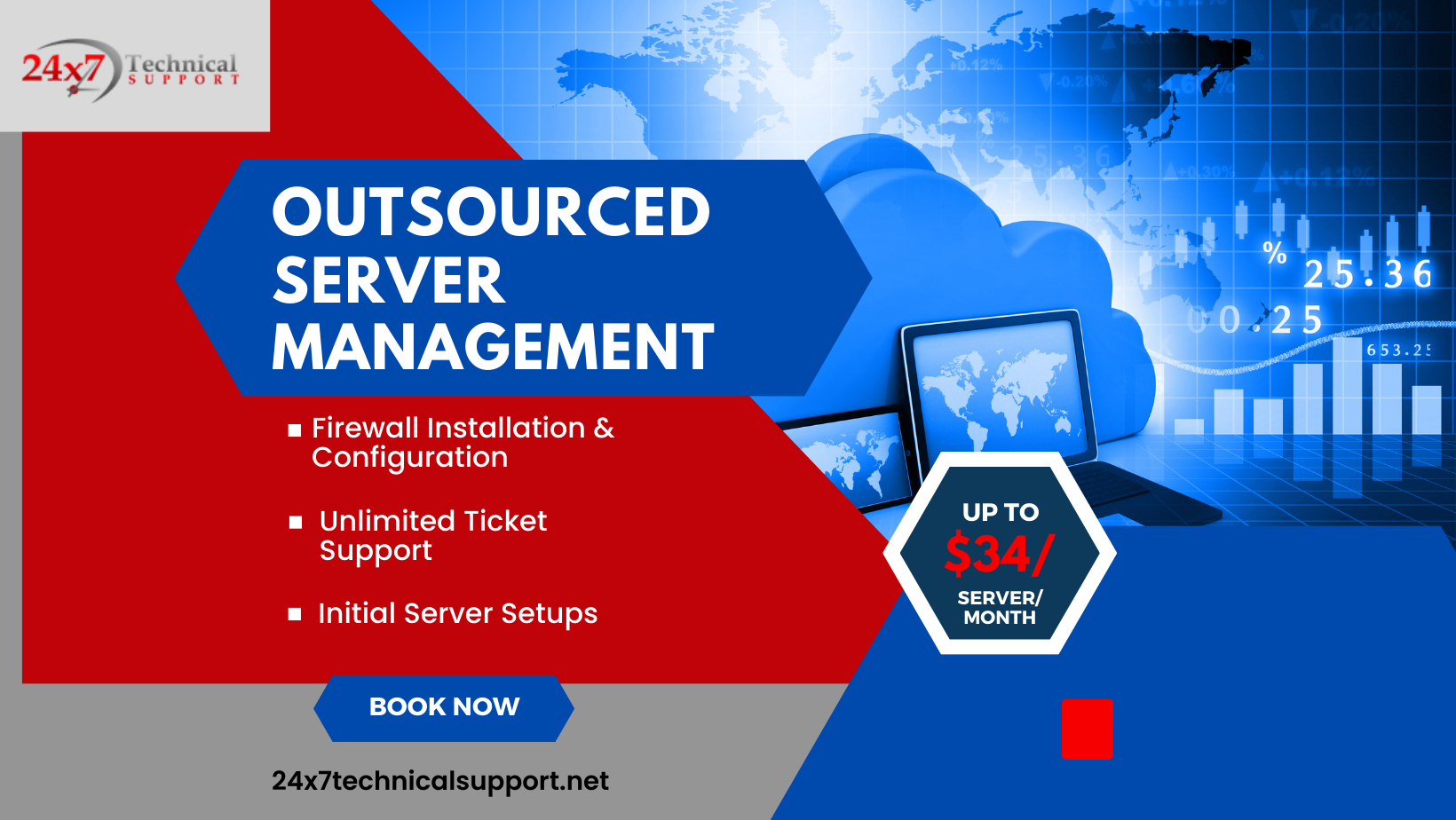
Introduction:
In today’s fast-paced digital landscape, managing server infrastructure can be a complex and time-consuming task. For businesses seeking efficiency, scalability, and expert support, outsourced server management offers a compelling solution. In this blog, we will explore the world of outsourced server management, discussing its benefits, considerations, and best practices to help you make informed decisions about leveraging this valuable service.
Understanding Outsourced Server Management:
Outsourced server management involves entrusting the management and maintenance of your server infrastructure to a specialized external service provider. This provider assumes responsibility for tasks such as server setup, configuration, monitoring, security, backups, and troubleshooting. By outsourcing these responsibilities, businesses can focus on core operations, enhance performance, and leverage the expertise of dedicated professionals.
.jpg)
Benefits of Outsourced Server Management:
Expertise and Support:
Outsourcing server management allows you to tap into the expertise of seasoned professionals who specialize in server administration. They bring in-depth knowledge, experience, and access to the latest industry best practices, ensuring optimal server performance and reliability.
Scalability and Flexibility:
With outsourced server management, you can easily scale your infrastructure to accommodate changing needs. Service providers can swiftly adapt to increased traffic, add or remove resources, and optimize configurations to match evolving requirements.
Cost Savings:
Outsourcing server management eliminates the need to hire and maintain an in-house IT team solely dedicated to server administration. This reduces overhead costs associated with salaries, training, infrastructure, and ongoing maintenance.
Enhanced Security:
Service providers prioritize server security, employing robust measures to protect against potential threats and vulnerabilities. They implement firewalls, intrusion detection systems, malware scanning, and regular security audits, ensuring a secure environment for your data and applications.
Proactive Monitoring and Maintenance:
Outsourced server management includes continuous monitoring of server health, performance, and uptime. Service providers proactively address issues, perform routine maintenance tasks, and implement optimizations to maximize server efficiency.
.jpg)
Considerations when Outsourcing Server Management:
Reliability and Reputation: Research and select a reputable service provider with a track record of delivering reliable and high-quality server management services. Seek recommendations, read reviews, and evaluate their expertise in your specific industry or server infrastructure requirements.
Service Level Agreements (SLAs): Understand the terms and conditions outlined in the SLA, including response times, support availability, and guarantees for uptime and performance. Ensure the SLA aligns with your business needs and expectations.
Data Security and Compliance: Prioritize data security when selecting a service provider. Ensure they follow industry-standard security practices, comply with relevant regulations (e.g., GDPR, HIPAA), and offer appropriate data backup and disaster recovery mechanisms.
Communication and Support: Clear and timely communication is vital in outsourced server management. Evaluate the service provider’s communication channels, availability of support, and responsiveness to inquiries or issues.
Conclusion:
Outsourced server management offers businesses the opportunity to optimize their infrastructure, enhance performance, and focus on core operations without the burden of managing complex server environments. By partnering with a reliable service provider, leveraging their expertise, and implementing best practices, you can streamline your server management, improve security, and position your business for growth and success. Embrace the benefits of outsourcing and unlock the potential of your server infrastructure.
Visit us for Dedicated Support.